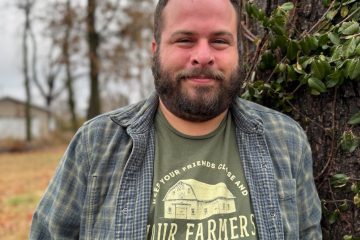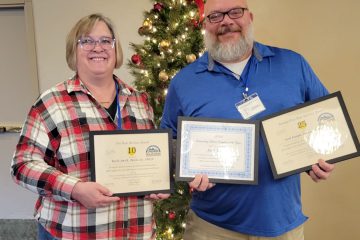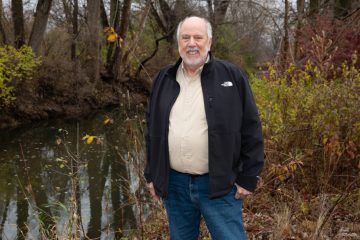AISWCD Executive Director Dr. Michael Woods composed this letter to the editor in response to a January 28, 2024 front page story in the Chicago Tribune . . .
Karina Atkins’ January 28 portrayal “Illinois farmers struggle to balance livelihoods with reducing agricultural runoff, a major contributor to Gulf dead zone” addresses the realization agricultural conservation needed to curb the nutrient loss is, at heart, a social phenomenon more than a scientific challenge.
Threats to our state’s land and waterways are influenced by a wide range of political, economic, and cultural factors. But in the end the conservation of our soil and water is conceived and carried out by people.
The conservation of our natural and working lands is a manifestation of human beliefs and values. Choices over production practices and long-standing habits, how to prioritize returns on investments, and how to advance them are inherently social. With consequences downstream, not just locally; and for farmers’ livelihoods and human lives, both rural and urban.
As Atkins noted, over the past century or so, many players have dramatically altered the agricultural industry such that scientists conclude many non-conservation farming practices have led to the current state of our natural resources.
Ultimately humans are responsible for changes to current weather patterns and an unprecedented loss of nature. And yet human behavior is repeatedly spared when developing agricultural conservation solutions that tackle these challenges.
While billions of dollars are being invested in protecting our waterways and rebuilding our soils, we continue to find that field-level efforts are not advancing at the pace needed to address the Illinois nutrient loss reduction strategy. And part of the reason is ignoring the root cause of limited progress—people.
When we talk about conserving agricultural lands and waterways, we should really be talking about changing the way people neglect to heed the call to action and implement proven conservation practices, like cover crops, reduced tillage, and edge-of-field practices.
Agricultural conservation ultimately is a social process rooted in peoples’ choices. These have consequences not only for soil health and water quality, but also for producer/landowner livelihoods. We need to better understand these consequences and the barriers to producer implementation if we’re going to truly advance solutions that are effective, lasting, and equitable.
To this end, we need to see increased political leadership to elevate state investments into our 97 Soil and Water Conservation Districts, primed to work with producers and landowners to implement the needed conservation practices to ensure that our water runs clean and our soil remains healthy.
Michael Woods
Executive Director
Association of Illinois Soil & Water Conservation Districts
Springfield, Illinois


